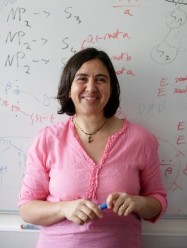BibTex format
@inproceedings{Gaskell:2022:ijcai.2022/573,
author = {Gaskell, A and Miao, Y and Toni, F and Specia, L},
doi = {ijcai.2022/573},
pages = {4129--4135},
publisher = {International Joint Conferences on Artificial Intelligence},
title = {Logically consistent adversarial attacks for soft theorem provers},
url = {http://dx.doi.org/10.24963/ijcai.2022/573},
year = {2022}
}

